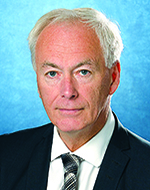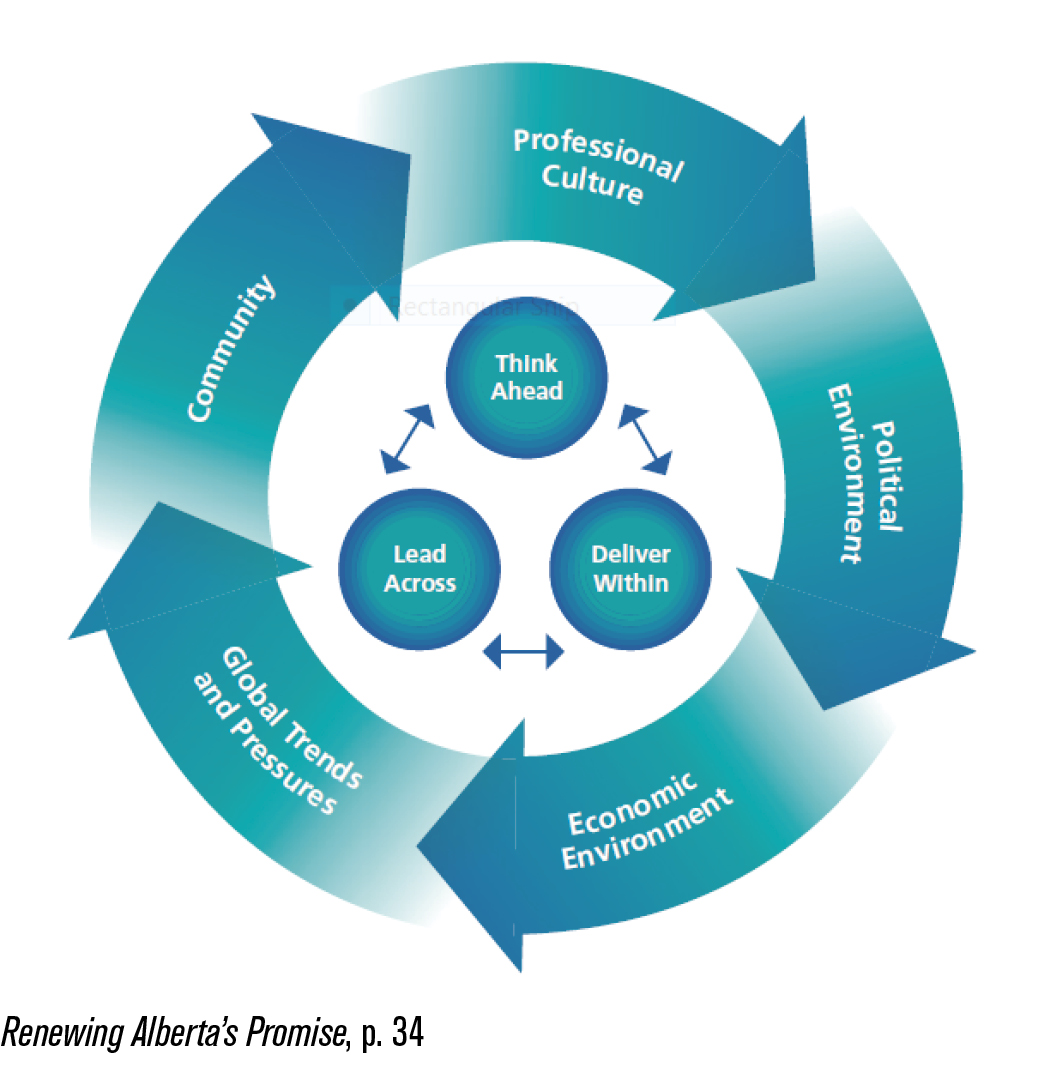Page Content
Building integrity through international cooperation
 So if we have raised New Zealand’s rankings in the school subject called ‘math’ (which actually has little to do with mathematics) at the cost of our Pasifika children losing their language and their souls, what have we really done?
So if we have raised New Zealand’s rankings in the school subject called ‘math’ (which actually has little to do with mathematics) at the cost of our Pasifika children losing their language and their souls, what have we really done?
Auckland teacher at Alberta-New Zealand partnership meeting, April 13, 2016
At its September 2010 meeting, Provincial Executive Council approved the Finland–Alberta (FINAL) International Partnership, a nascent educational development network of high schools committed to the following shared aspiration: “Education partners in Finland and Alberta advance international educational and policy development through a shared commitment to provide a great school for all students.”
The six years since the launch of FINAL has demonstrated the power of international partnerships by building the Association’s research capacity in the hope of ensuring the integrity of educational development in Alberta. From the initial partnership with Finnish schools, the network of innovation co-developed with the publication of the Association’s roadmap for educational development, A Great School for All: Transforming Education in Alberta Schools (2012), has grown to include Norway and New Zealand as well as researchers in Iceland and Singapore.
Complementing these networks of schools and research-practitioners, the Association, through the Council for School Leadership, has positioned Alberta teachers and school leaders at the forefront of the international stage through the uLead conference, which now draws more than 1,000 participants.
All of this work has flowed from the premise that schools belong to the community, not to distant educational bureaucracies; that the student voice is about democratic deliberation, not something measured episodically on surveys; and that a public school education moves beyond “learnification” to address the growth of the children and youth as whole persons living in complex and diverse communities.
This work is also evident through student-led changes in Finnish and Alberta schools, to the effort to advance equity in mathematics in schools in Norway, Ontario and Alberta (the NORCAN Partnership). More recently the Association with the New Zealand Education Institute (NZEI) has co-sponsored parallel efforts to support school leadership in this area. As we have discovered, New Zealand educators have worked successfully to meet the needs of their Maori and Pasifika children — offering important insights into the long overdue work we face here in Alberta with our FNMI communities. However, both our New Zealand and Alberta school teams recognize that our respective systems have a long but hopeful road ahead.

By imagining schools built around a commitment to equity, by learning across boundaries and by applying what we have learned to complex challenges, the Association sees this work as the way to ensure the integrity of purpose, practice and policy as the Alberta teaching profession continues to advance its vision for educational development.
Purpose
Pasi Sahlberg (2011), who was instrumental in establishing the FINAL partnership, coined the now familiar term Global Educational Reform Movement (GERM) to describe current distorted conceptions of leadership that prevent governments from undertaking meaningful democratically determined educational reforms. Driven by a cadre of professional “school reform” bureaucrats and corporate interests, GERM represents a neoliberal movement that promotes an agenda with which Alberta teachers and their colleagues in Finland, Norway and New Zealand are all too familiar:
- A narrow focus on “basics” tied to core subjects (repackaged as competencies in the Common Core Standards in the United States and Canada and here in Alberta as a focus on literacy and numeracy as a foundation for curriculum redesign)
- The deployment of standards for teaching practice and school leadership without the involvement of the profession, all supported through data infrastructures and surveillance
- The uncritical reliance on technologies as a way to resource, manage and monitor education and school life — all driven by privatization and the commercialization of public education
Fuelled by organizations such as the Organization for Economic Co-operation and Development (OECD), the GERM compels schools and nations to compete for scarce resources and seek vaguely described competitive advantages rather than collaborate. To facilitate managerial accountability, the GERM requires the maintenance of a large bureaucratic infrastructure that generates a seemingly endless stream of standards, benchmarks and performance indicators — all to feed data infrastructures (Lingard and Sellar, 2013; Sahlberg, 2016).
As with jurisdiction partners in New Zealand and Norway, the prevalence of the GERM impedes governments from meaningfully reforming curriculum and assessment, and addressing inequity and other systemic barriers to student success. In our partnership with both Norway and New Zealand, the manufactured crisis in mathematics is a shared challenge for teachers and their organizations as they attempt to focus governments and public debate on the systemic barriers to learning.
Practice
The Association’s historical commitment to advance and support exemplary teaching practices and school leadership is a focus of the international partnership work. The Association continues to place a priority on achieving full self-governance of the teaching profession in Alberta, in such a way as to focus public assurance on the ultimate goal of improving teaching and learning. As we have learned from our work in New Zealand and Norway, where teacher autonomy and optimal conditions of practice are supported, it is more than possible to address the complex needs of classrooms. The Association’s international partnerships are driven by the principle that educational development is best achieved by supporting local innovations, enabled by system leadership, that function as ecosystems not ego-systems. As well, the research teams monitoring the progress of the NORCAN project have identified the promise of teacher networks focusing on equitable outcomes in mathematics.
Policy
In 2012 the Alberta Teachers’ Association brought together a panel of international experts to assist in the development of a blueprint for sustaining innovation in Alberta’s K–12 education sector. A Great School for All: Transforming Education in Alberta outlined a comprehensive model for mobilizing research to build the capacity for informed change. In the summer of 2015, a follow-up research report, Renewing Alberta’s Promise: A Great School for All, described how reform in curriculum and assessment must involve a number of dimensions, including the complex interrelationships among the optimal conditions for teaching and learning, support for professional development and autonomy, and new approaches to accountability that reflect the value of excellence through equity.
Finland is an exemplar of this approach because the locus of control in Finland is at the school-community level. As a counterweight to the current reliance on grandiose “system reform” driven by the global education movement (GERM), FINAL has demonstrated how international partnerships can sustain local innovation and creativity at the school level while disseminating and scaling innovation throughout the system. This is a key conclusion of the external research team that has monitored the progress of the partnership to date (Shirley and Lam, 2012).
Our work with Finland’s Ministry of Education has also reinforced the view that Alberta needs to develop a coherent policy framework, something that it could have learned by studying Finland’s Development Plan for Education and Research 2007–12. Developed by the national government, this strategy for supporting innovation in all sectors is tied to initiatives at the community level. It goes without saying that this stands in stark contrast to the scarred policy landscapes and micropolitics that dominated the education sector in the dying days the former Conservative government. In this regard it is important to note that the current ruling New Democratic Party has yet to develop an education policy or a long-term vision for education in the province.
In terms of building the capacity to “think ahead,” a parallel effort undertaken by Singapore (Centre for Strategic Futures, 2013) also illustrates the benefits of cross-ministry strategic foresight. The Causal Layered Analysis Project: An -agency project to explore the socio-economic aspirations of Singaporeans, represents a process whereby thought leaders explore the underlying causal layers of an issue from the perspective of multiple narratives and individual experiences. This includes consideration of dominant myths, metaphors and cultural memes that shape public opinion and policy.
Impact With Integrity
The Association’s partnerships represent a sophisticated, multilevel network of teachers, school leaders and researchers focused on the aspirations of A Great School for All. While these partnerships have garnered international attention that has been profiled at a number of international conferences and publications (Couture, 2015; Murgatroyd and Stiles, 2015), the generation and dissemination of the research developed through internationalization efforts is not the generative goal. The enduring purpose remains to advance the aspirations of teachers leading positive change in Alberta’s increasingly complex and diverse schools to ensure our communities flourish as vibrant places where all students have a great public education.
References
Alberta Teachers’ Association (ATA). 2012. A Great School for All: Transforming Education in Alberta. Edmonton, Alta: ATA.
Centre for Strategic Futures. 2013. Causal Layered Analysis Project: An Inter-agency Project to Explore the Socio-economic Aspirations of Singaporeans. http://www.soif.org.uk/wp-content/uploads/2013/09/Causal-Layered-Analysis-Project-Report-final.pdf
Couture, J-C. 2015. “Crossing Boundaries to Promote Strategic Foresight.” In Teacher Unions in Public Education Politics, History, and the Future, ed. N. Bascia, 155–168. New York: Palgrove.
Lingard, B., and S. Sellar. 2013. “‘Catalyst Data’: Perverse Systemic Effects of Audit and Accountability in Australian Schooling.” Journal of Education Policy 28, no 5: 634–56.
Murgatroyd, S. and J. Stiles. 2015. “Building Adaptive Capacity in Alberta Schools.” Paper presented at the Building International Partnerships through Adaptive Capacity Institute, Banff, Alberta, November 20–21.
Sahlberg, P. 2011. Finnish Lessons: What Can the World Learn from Educational Change in Finland? New York, NY: Teachers College Press.
——— 2016. “From Big Data to Small Data.” Paper presented at Twin Peaks: A Global Summit on the Datafication and the Commercialization of Public Schooling, Council for School Leadership ULead Conference, Banff, Alberta, April 24–27.
Sellar, S. 2015. “Rethinking Accountabilities.” Presentation at the Central Alberta Teachers’ Convention, Red Deer, February 19.
Shirley, D., and K. Lam. 2012. “Fourth Way FINAL: The Power of the Internationalization of Networks of School Leaders.” In Rethinking School Leadership — Creating Great Schools for All Students, ed. J-C Couture and S. Murgatroyd, 112–141. Edmonton: Future Think Press.
